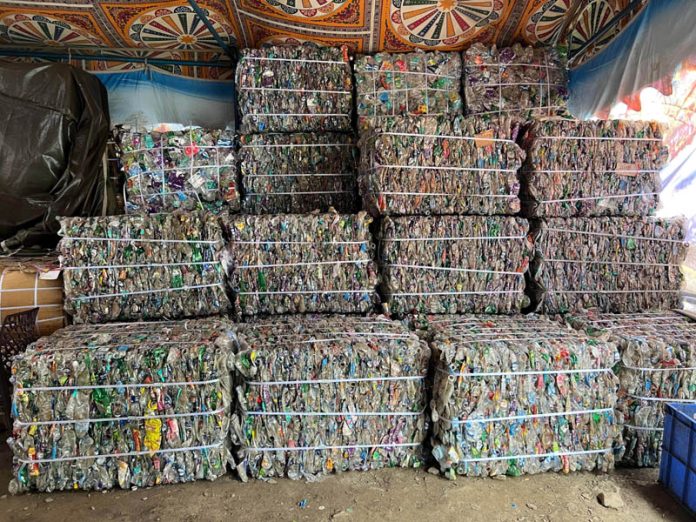Excelsior Correspondent
SRINAGAR, July 16: In a concerted effort to ensure a sustainable Shri Amarnath Ji Yatra- 2024, the Government has adopted comprehensive measures aimed at achieving zero landfill and zero waste while maintaining cleanliness throughout the pilgrimage.
The Directorate of Rural Sanitation under Department of Rural Development and Panchayati Raj J&K has launched various initiatives to make the annual Yatra a zero-landfill pilgrimage.
The initial 20 days of the Yatra have seen a significant amount of waste generated by devotees and service providers. The cumulative figure of waste on both axes remains 200 tonnes. Total quantity of waste processed in tonnes is 162.40, and total inert waste generated in tonnes is 34.30.
Out of total 200 tonnes of waste, the wet waste collection is 85.15 tonnes in which 85.02 tonnes of wet waste was processed and a little quantity of wet waste 0.07 tonnes was sent to EFL.
The dry waste collection is 80.31 tonnes out of which 77.38 tonnes was processed and only 3 tonnes of waste is yet to process. Similarly, out of 34.30 tonnes of inert, 25 tonnes was sent to Srinagar Municipal Corporation (SMC).
Secretary Rural Development and Panchayati Raj, J&K Dr Shahid Iqbal Choudhary and Director Rural Sanitation Anoo Malhotra have been regularly reviewing the sanitation facilities and progress.
Several initiatives with service providers have been taken to ensure a clean and waste-free yatra. Eco-friendly bags were being provided in place of plastic and polythene bags. Water ATMs have been installed at Yatra base camps and enroute to holy cave to reduce the PET bottles consumption.
15 waste processing facilities had been established on both Baltal and Pahalgam axis to deal with huge quantity of wet and dry waste collected from different camp locations and enroute. More than 7000 sanitation workers are working in 3- shifts to clean the base camps, roads, routes, and other resting places.


